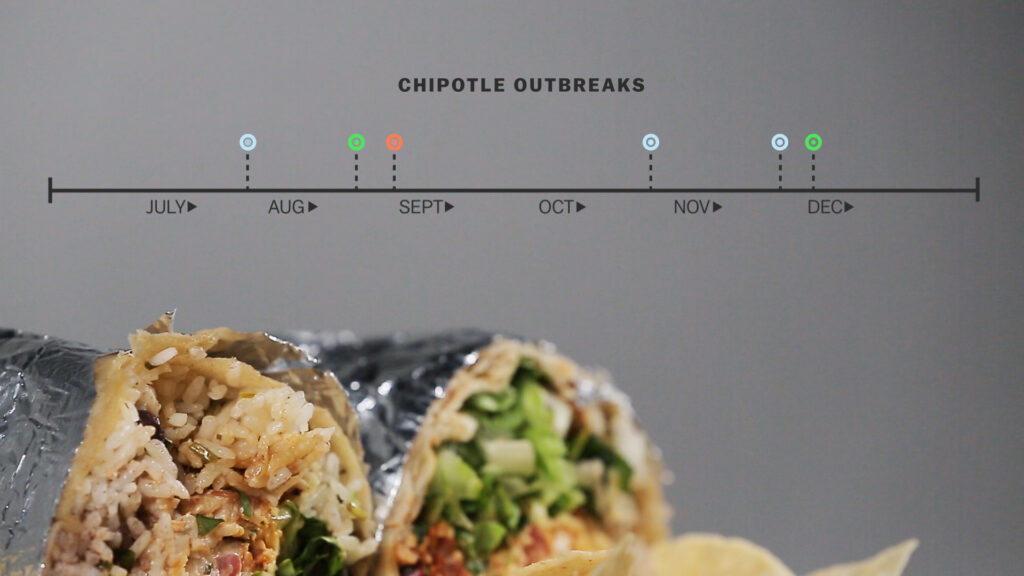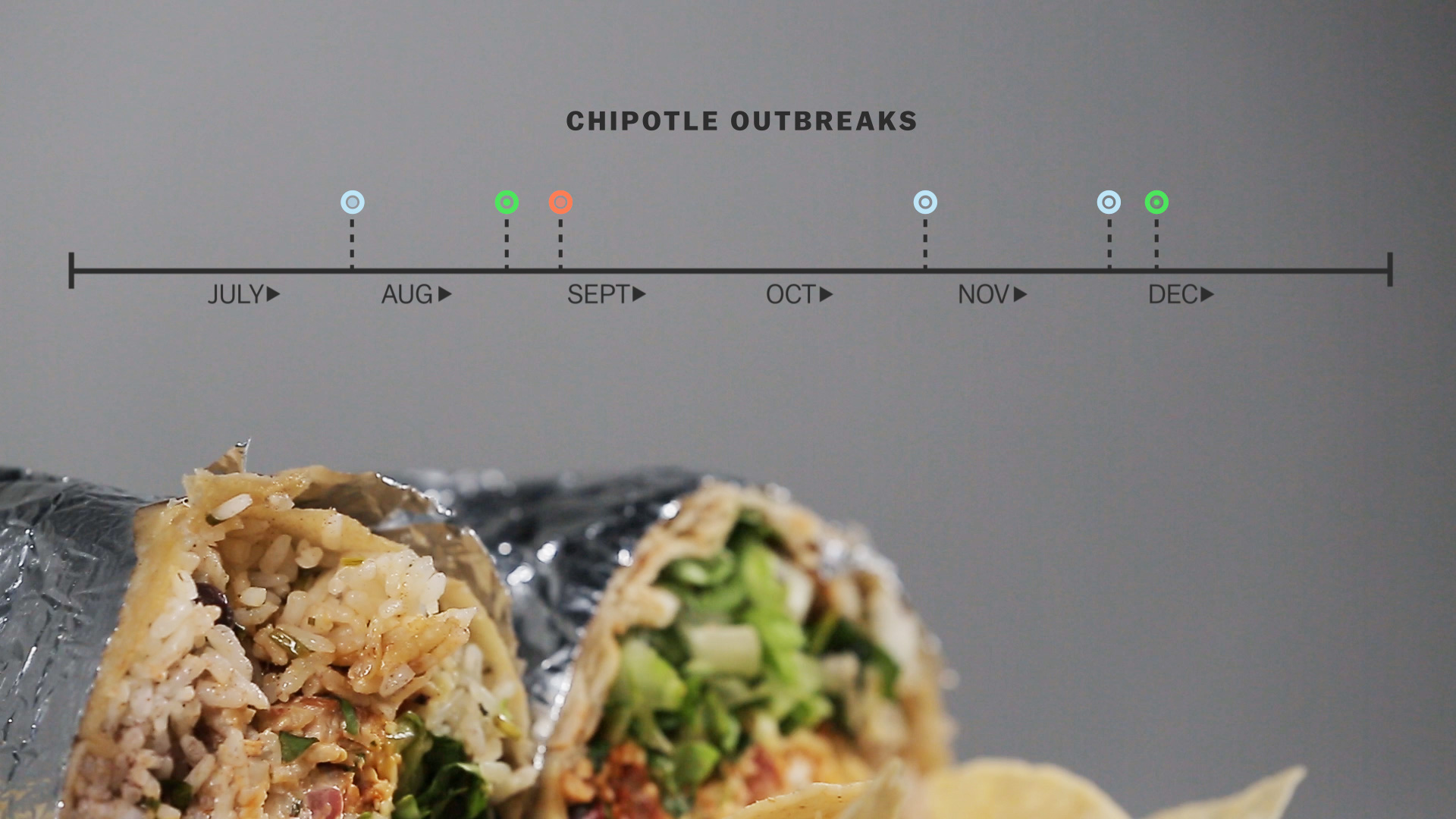
Chipotle Food Poisoning Concerns Emerge in 2025: What You Need to Know
As we navigate 2025, concerns surrounding Chipotle food poisoning have resurfaced, prompting investigations and raising questions about the safety of dining at the popular fast-casual chain. This article delves into the recent reports, potential causes, and what Chipotle is doing to address these issues. Understanding the risks and preventative measures is crucial for consumers who enjoy Chipotle’s offerings.
Recent Reports of Chipotle Food Poisoning in 2025
In the early months of 2025, a series of reports began circulating regarding individuals experiencing symptoms consistent with Chipotle food poisoning after dining at various locations across the United States. These reports, primarily surfacing on social media and through local news outlets, detailed cases of nausea, vomiting, diarrhea, and abdominal cramps. The severity of the reported illnesses varied, with some individuals requiring medical attention.
Health departments in several states have initiated investigations into these claims. Preliminary findings suggest potential links to norovirus and E. coli contamination. While the investigations are ongoing, these initial results have understandably caused concern among Chipotle’s customer base.
Potential Causes of Food Poisoning at Chipotle
Several factors can contribute to instances of Chipotle food poisoning. Understanding these potential causes is essential for both Chipotle and its customers to mitigate risks.
Norovirus Contamination
Norovirus is a highly contagious virus that can easily spread through contaminated food or surfaces. It is a common cause of foodborne illness, characterized by rapid onset of symptoms such as vomiting and diarrhea. Infected food handlers who do not adhere to strict hygiene protocols can inadvertently contaminate food, leading to outbreaks. Improved sanitation practices and employee training are essential to prevent norovirus outbreaks.
E. coli Contamination
Escherichia coli (E. coli) is a bacterium that can cause severe food poisoning. Certain strains, such as Shiga toxin-producing E. coli (STEC), are particularly dangerous. Contamination can occur through contact with animal feces, improper washing of produce, or inadequate cooking of meat. Chipotle’s sourcing and handling procedures are critical in preventing E. coli contamination. Thorough washing of all produce and ensuring meat is cooked to the correct internal temperature are vital preventative measures.
Improper Food Handling
Even without specific viral or bacterial contamination, improper food handling practices can lead to food poisoning. This includes inadequate temperature control, cross-contamination between raw and cooked foods, and insufficient cooking times. Maintaining proper food storage temperatures, using separate cutting boards for raw and cooked items, and ensuring all food is cooked thoroughly are crucial for preventing illness. Consistent adherence to food safety guidelines is paramount in preventing Chipotle food poisoning incidents.
Sourcing Issues
The source of ingredients plays a significant role in food safety. If produce or meat is sourced from suppliers with poor hygiene practices, the risk of contamination increases. Chipotle’s supply chain management is a critical component of its food safety strategy. Regular audits and stringent quality control measures are necessary to ensure that all suppliers adhere to the highest standards of hygiene and safety. Traceability of ingredients is also essential to quickly identify and address potential sources of contamination.
Chipotle’s Response to Food Poisoning Concerns in 2025
In response to the recent reports of Chipotle food poisoning, the company has issued statements emphasizing its commitment to food safety and outlining the steps being taken to address the concerns. These measures include:
- Enhanced sanitation protocols in all restaurants
- Increased employee training on food safety practices
- Thorough investigation of reported incidents
- Collaboration with health departments to identify and address potential sources of contamination
- Review of supply chain management practices
Chipotle has also stated its intention to implement additional safety measures, such as enhanced testing of ingredients and improved monitoring of food handling practices. The company acknowledges the seriousness of the situation and is committed to regaining the trust of its customers. Transparency in communication and proactive measures are vital for Chipotle to overcome these challenges.
Symptoms of Chipotle Food Poisoning
Recognizing the symptoms of Chipotle food poisoning is crucial for seeking timely medical attention and reporting the incident to health authorities. Common symptoms include:
- Nausea
- Vomiting
- Diarrhea
- Abdominal cramps
- Fever
- Dehydration
The onset of symptoms can vary depending on the type of contaminant, but generally occurs within a few hours to a few days after consuming contaminated food. If you experience any of these symptoms after eating at Chipotle, it is essential to consult a healthcare professional and report the incident to your local health department. Early detection and reporting can help prevent further spread of the illness.
Preventative Measures for Consumers
While Chipotle is responsible for maintaining high food safety standards, consumers can also take steps to minimize their risk of food poisoning:
- Check restaurant hygiene scores: Many local health departments provide online access to restaurant inspection reports.
- Observe restaurant conditions: Look for signs of cleanliness and proper food handling practices when dining at Chipotle.
- Report concerns: If you observe any unsanitary conditions or improper food handling, report it to the restaurant management or health department.
- Stay informed: Keep up-to-date on any food safety alerts or recalls related to Chipotle.
Being proactive and informed can help consumers make safer choices when dining out. [See also: Restaurant Hygiene Tips for a Safe Dining Experience]
Legal Recourse for Chipotle Food Poisoning Victims
Individuals who have suffered from Chipotle food poisoning may have legal recourse to seek compensation for their medical expenses, lost wages, and pain and suffering. To pursue a legal claim, it is essential to gather evidence, such as medical records, receipts, and any documentation related to the incident. Consulting with a personal injury attorney specializing in food poisoning cases can help victims understand their rights and options. Legal action can hold Chipotle accountable for its negligence and ensure that victims receive fair compensation for their damages. [See also: Understanding Food Poisoning Lawsuits]
Long-Term Implications for Chipotle
The recurring incidents of Chipotle food poisoning have significant long-term implications for the company’s reputation and financial performance. Consumer confidence is crucial for the success of any restaurant chain, and food safety incidents can erode that trust. Chipotle must take decisive action to address the underlying issues and implement sustainable solutions to prevent future outbreaks. Investing in enhanced food safety measures, improving employee training, and strengthening supply chain management are essential for restoring consumer confidence and ensuring the long-term viability of the brand. Effective communication and transparency are also critical for rebuilding trust with customers. [See also: Crisis Management in the Food Industry]
The Future of Food Safety at Chipotle
Looking ahead, the future of food safety at Chipotle hinges on the company’s commitment to continuous improvement and innovation. Embracing new technologies, such as blockchain for supply chain traceability and advanced sanitation systems, can help enhance food safety measures. Collaboration with industry experts and regulatory agencies is also essential for staying ahead of emerging threats and implementing best practices. Chipotle must prioritize food safety as a core value and integrate it into every aspect of its operations to ensure the health and well-being of its customers. The ongoing reports of Chipotle food poisoning serve as a reminder of the importance of vigilance and proactive measures in the food industry.
Conclusion
The recent reports of Chipotle food poisoning in 2025 underscore the ongoing challenges in ensuring food safety at large restaurant chains. While Chipotle has taken steps to address these concerns, vigilance and continuous improvement are essential. Consumers should remain informed and take preventative measures to protect themselves. By understanding the risks, recognizing the symptoms, and holding companies accountable, we can work towards a safer dining experience for everyone.

